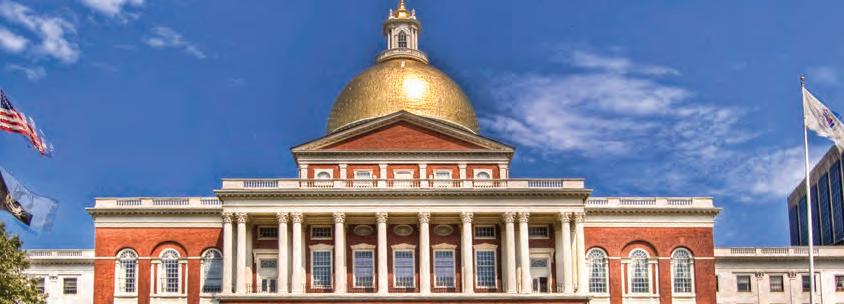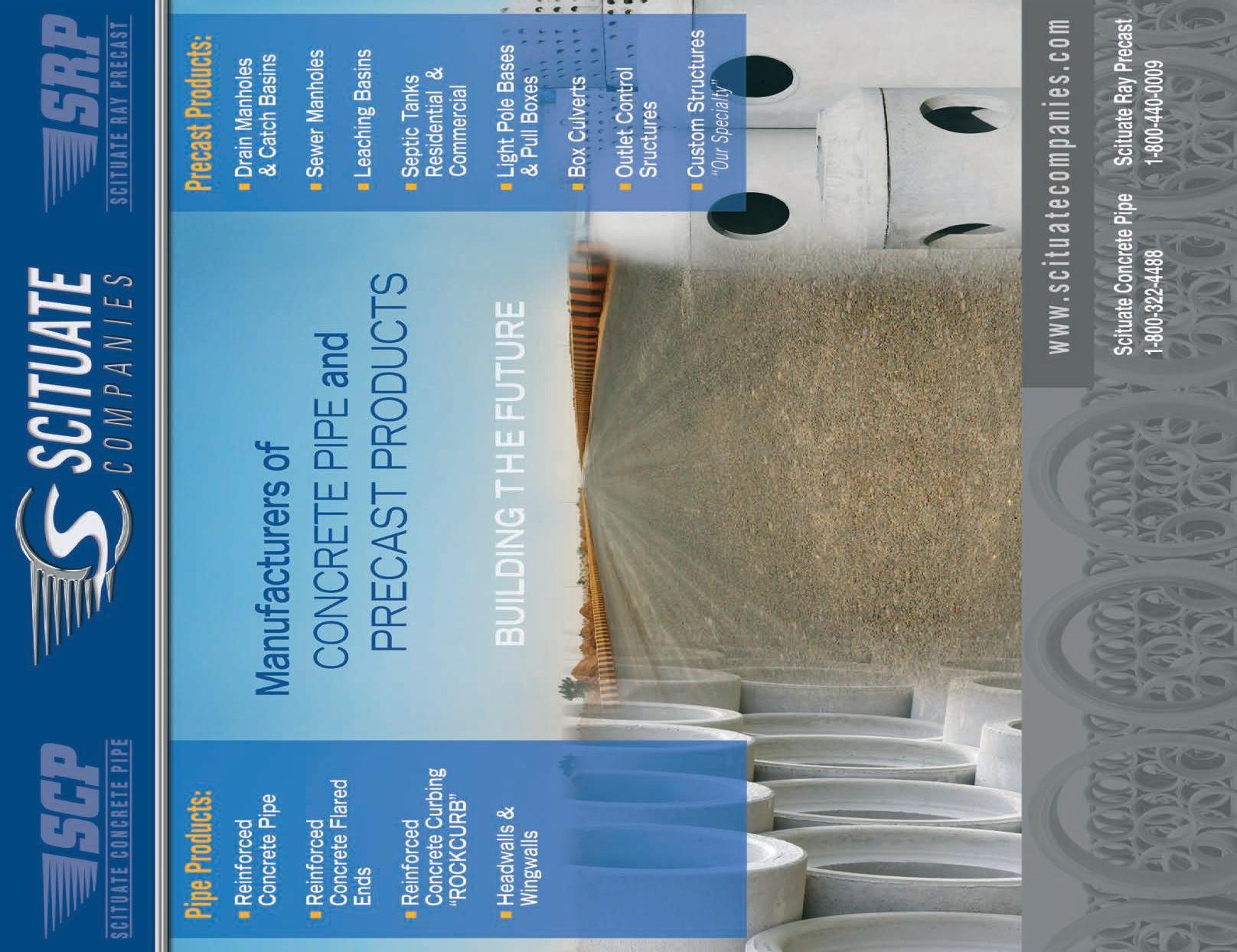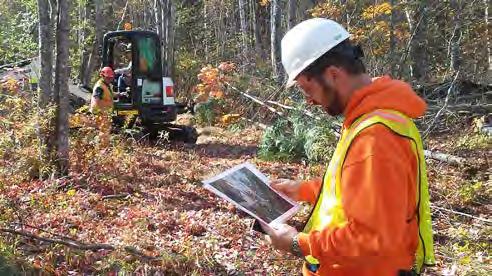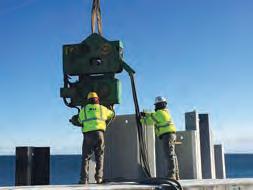
13 minute read
Legislative Update
Mark Molloy, Esq., Cascade Strategies LLC
Governor Files FY22 Budget Proposal
Governor Charlie Baker kicked off the fiscal year 2022 (FY22) budget process with the filing of his budget proposal in late January. The Governor’s FY22 budget includes a total of $45.6 billion in gross spending, excluding the Medical Assistance Trust Fund transfer, which is approximately 0.7% below Fiscal Year 2021 (FY21). This decrease accounts for current tax projections and is primarily driven by caseload and cost decreases at MassHealth, which previously experienced significant cost increases in FY21 due to the pandemic. The proposed FY22 budget investment is based on the $30.120 billion consensus tax revenue estimate, which anticipates a 3.5% growth in total tax collections over revised FY21 tax estimates.
Having termed the FY22 budget cycle as a “recovery budget,” Governor Baker actually looked to tighten the budget in some areas, with appropriations reductions or eliminations, and gently increased other line-items. It was anticipated, as recently as October, that the Governor’s FY22 budget proposal would see reductions across the board. This will be the first budget that fully funds the state’s new Student Opportunity Act with $246.3 million in new funding added for initiatives laid out in this legislation. The Baker-Polito Administration also proposed an increase in the Unrestricted General Governmental Aid (UGGA) investment that is equivalent to the expected 3.5% tax revenue growth in the consensus revenue forecast announced on January 15, 2021. House 1 also includes $4 million for Community Compact-related programs including best practices and regionalization and efficiency grants, as well as $3 million for district local technical assistance and $4.8 million for the Public Safety Staffing Grant Program. These programs provide all 351 cities and towns with access to grant funding and resources to ensure quality services for their residents.
Of particular note to UCANE, the Governor’s proposed budget seemed to take a halting approach to water infrastructure priorities. While a Governor’s budget is rarely what a final budget looks like, it does tend to layout an Administration’s vision for the upcoming year. In this case, the Governor’s budget proposal significantly reduced funding for the Massachusetts Clean Water Trust’s (CWT’s) contract assistance line-item with a proposed appropriation of $39,014,000. This represents a significant decrease from last year’s budgeted amount of $63,383,680. Despite the CWT’s exceptional job managing the Commonwealth’s debt obligations, this would present a poor precedent for the future of water infrastructure funding.
While the FY21 budget process resulted in an extraordinary commitment to the Massachusetts Department of Environmental Protection’s administrative line-item at slightly under $40 million, the Governor’s FY22 budget proposal looks to fund the agency at slightly more than $33 million, given one-time spending from the previous fiscal year. As a result of the MassDEP’s work with municipalities and management of water infrastructure programs, UCANE has traditionally advocated for higher funding so that the MassDEP has the personnel necessary to continue with the efficient operation of these programs.
In other appropriations, the Baker-Polito Administration, as per the norm for this and past
continued on page 9
Legislative Update continued from page 7 Governors, proposed eliminating the Commonwealth Sewer Rate Relief Program. The program, which used to be funded with slightly more than $63 million in appropriations, has been funded at more symbolic levels of $1 million to $1.5 million in recent years. Funding for PFAS testing and remediation, which was included in recent supplemental budgets by the Massachusetts legislature, was not included in the Governor’s proposal. Finally, proposed funding for the continuation of the Underground Storage Tank Removal Program was essentially level funded at $10 million after many years of the program seeing much lower appropriations.
The Massachusetts House of Representatives will consider its own budget proposal in April of this year. The Massachusetts Senate will follow suit in May with a Conference Committee appointed shortly thereafter in the hopes of delivering a final FY22 budget proposal to the Governor for his approval before the start of the new fiscal year on July 1.
continued on page 11

Untitled-6 1 3/7/2016 3:49:21 PM
Aon Risk Solutions
We can empower your business growth, profitability, and continuity
Aon Construction Services Group partners with clients to provide insightful analysis, strategic direction and creative solutions backed by our dedicated team of construction experts and the strength of Aon’s global network. For more information, please contact Michael Scott at 617.457.7699 or michael.scott@aon.com

Legislative Update continued from page 9
The end of the 2019-2020 legislative session brought a cascade of conference committee reports in the last days of session. Unfortunately, the end of session also brought a notable “pocket veto” from Governor Baker on the Massachusetts legislature’s green energy and emissions reduction legislation. Citing a host of reasons primarily concerned with the potential costs and the reporting schedule proposed under the legislation, Governor Baker refused to sign the legislation since there was no further opportunity to amend the legislation given the fact the 2019-2020 session no longer existed.
Accordingly, the Massachusetts legislature resent Governor Baker a completed green energy and emissions reduction bill as one of the first pieces of business for the 2021-2022 legislative session. The compromise bill, Senate Bill 9, An Act Creating a Next Generation Roadmap for Massachusetts Climate Policy, codified the state’s target of net-zero carbon emissions by 2050. The legislation, which revamps the 2008 Global Warming Solutions Act, mandates that statewide emissions limits be set and met for 2025, 2030, 2035, 2040, and 2045 with specific roadmap plans required to lay out the strategies employed to meet each interim target. Within each fiveyear statewide greenhouse gas emissions limit, the bill calls for mandatory emissions sub-limits for six sectors of the economy that negotiators described as high-priority: electric power, transportation, commercial and industrial heating and cooling, residential heating and cooling, industrial processes, and natural gas distribution and service.
Again, of additional interest to UCANE members, the legislation contained extensive provisions aimed at safeguarding the Commonwealth’s natural gas infrastructure. In particular, the legislation requires the DPU to issue new regulations relative to training and certifying utility contractors. The bill also instructs the DPU to set standards for maintaining gas distribution maps and records and directs gas companies to report "disruptions in the provision of electronic data" as a service quality metric. The compromise legislation extends whistleblower protection to utility employees who report violations of law by their employers. Finally, the legislation increases the penalties for failure to restore service after emergencies and raises the cap on civil penalties for gas pipeline safety violations, but does not amend the Dig Safe law as originally proposed.
The compromise legislation, which also includes provisions allowing for the adoption of local, net-zero stretch codes, includes a variety of provisions embracing solar and wind power. The Governor is likely to offer amendments on the proposed legislation. The currently configured legislation may be viewed at: https://malegislature.gov/Bills/192/S9.


Green Beam Pipe Laser Compact & Powerful!
• 500 ft. (150 m) operating range • High visibility Green Beam excellent for use in dark pipe conditions • Stop by for a complete demonstration on this NEW state-of-the-art Pipe Laser • From the leaders in Pipe Laser technology - Spectra Precision
Model DG613G
5 Eastpoint Drive, Unit 1, Hooksett, NH 03106 Phone: 603-623-0188 • www.eastpointlasers.com

continued on page 13

Healey Names New Environmental and Energy Leadership
According to a press release issued by her office, Massachusetts Attorney General Maura Healey announced major staff appointments within her office’s Energy and Environment Bureau.
Ms. Rebecca Tepper will now serve as Chief of the Energy and Environment Bureau. Previously the Deputy Chief of the Bureau and Chief of AG Healey’s Energy and Telecommunications Division, Ms. Tepper was General Counsel to the Massachusetts Department of Public Utilities (DPU), serving as the chief legal advisor and overseeing all DPU adjudicatory and rulemaking proceedings. Ms. Tepper also served as Director of the Massachusetts Energy Facilities Siting Board and represented the state on the Eastern Interconnection States’ Planning Council. Before working for the Commonwealth, Ms. Tepper was a partner at Rubin and Rudman in Boston, representing developers throughout the Northeast in siting, permitting, financing, and contracting of renewable, distributed generation and conventional energy facilities. She also advocated on behalf of various stakeholders in state and federal proceedings involving rates, energy efficiency, demand response, and ISO New England markets and rules. A graduate of Boston University School of Law and the University of Wisconsin, Ms. Tepper resides in Lexington.
Mr. Christophe Courchesne will serve as Deputy Chief of the Energy and Environment Bureau. Prior to this appointment, Mr. Courchesne was Chief of AG Healey’s Environmental Protection Division where he supervised attorneys and support staff on wide-ranging environmental litigation, including enforcement of federal and state environmental laws, multistate partnerships on federal regulatory and policy actions, civil investigations, and environmental and energy policy analysis and advocacy. Before joining the AG’s Office in 2015, Mr. Courchesne was a senior attorney at Conservation Law Foundation and previously was a senior associate at Goodwin Procter LLP in Boston. Mr. Courchesne also served as a law clerk for Justice Robert J. Cordy of the Massachusetts Supreme continued on page 15

• Any Size Trench Box; Standard & Custom • Fully Stocked Sales & Rental Fleet • The Best Source for Road Plate Rentals • Two Trucks for FAST RELIABLE DELIVERY! Dave Pateuk / Owner Email: dave@northeastshoring.com Website: www.northeastshoring.com

Scientists | Engineers | Program Managers
Construction Management Services
Delivering the constructed project through collaborative program management services, construction oversight, and preparation of pre- and post-construction submittals.
Leading provider of environmental, health and safety consulting, and architectural/ engineering design services nationwide.

Mabbett provides construction managment services
in the environmental and clean construction practice areas merging the capabilities, interdisciplinary insight, and diverse experience of our technical staff to deliver program management, pre-construction, field oversight, and post-construction submittal services to our Federal, municipal, and industrial clients. With Construction Quality Management (CQM) and OSHA 8- and 30-Hour Construction Safety certified personnel on staff, Mabbett uses its corporate health and safety program as the foundation for delivering quality construction projects safely.
Services
- Program Management & Contract Administration - Cost Estimating & Scheduling - Quality Management & Safety Programs - Planning & Coordination - Stormwater Pollution Prevention & Inspection - Soil Assessment, Management & Remediation - Oversight Services - Project Close-Out Services
~ A Massachusetts OSD registered Service-Disabled Veteran-Owned Business Enterprise ~ www.mabbett.com


Mabbett & Associates, Inc.
Corporate Office 105 Central Street, Suite 4100 Stoneham, Massachusetts 02180 Tel.: 781-275-6050 info@mabbett.com Massachusetts | Rhode Island | New York | Virginia
Legislative Update continued from page 13 Judicial Court. He is an alum of the Boston Bar Association’s Public Interest Leadership Program, has served as the chair of the Grafton Planning Board, and was a charity runner for Casa Myrna in the 2013 and 2014 Boston Marathons. A graduate of Harvard Law School and the University of Massachusetts at Amherst, Mr. Courchesne resides in East Kingston, New Hampshire.
Ms. Betsy Harper, who has been with the AG’s Office for more than 30 years, will become Chief of the Environmental Protection Division (EPD). Ms. Harper has served as EPD’s deputy chief since 2012, and before that was an assistant attorney general in EPD. Her responsibilities within the office have included supervision of EPD’s civil enforcement work, as well as litigating and negotiating complex civil cases relating to hazardous materials, radioactive waste, wetlands, clean air and water, and solid waste. Ms. Harper is also known for her stellar mentorship of division staff and her leadership of the Office’s redevelopment work related to contaminated Brownfield sites in Massachusetts. Ms. Harper, a Littleton resident, is a graduate of Syracuse University College of Law and the University of Pennsylvania.
Mr. Nathan Forster will serve as Chief of AG Healey’s Energy and Telecommunications Division. He was previously Deputy Chief of the Division for more than five years where he managed staff, oversaw filings made with the DPU, and led a number of administrative and investigative matters within the division. As an assistant attorney general within the Divison beginning in 2012, Mr. Forster litigated and managed dozens of proceedings before the DPU, worked extensively on rate cases brought by gas and electric distribution companies, and investigated unfair and deceptive practices of competitive electricity suppliers. Before joining the AG’s Office, Mr. Forster was an associate at Brown Rudnick LLP, in Boston where he litigated significant contract, employment, land use, bankruptcy, antitrust, and real estate matters before Massachusetts federal courts, state courts, and state agencies. A graduate of Boston College Law School and the University of Michigan, Mr. Forster lives in Arlington.
The new leadership moves follow the announcement that former Environment and Energy Bureau Chief Melissa Hoffer was tapped by the Biden-Harris Administration to be principal deputy general counsel of the U.S. Environmental Protection Agency. continued on page 17
Now, one estimator accomplishes what it took two people
to do before.
LARRY BUTLER TRAFFIC & LIGHTING SYSTEMS

Break new ground, win more work and complete it more profitably with the unified ONE Platform for heavy construction estimating, operational workflows and business insight.

HEAR LARRY’S SUCCESS STORY AND MORE AT B2WSOFTWARE.COM/LARRY
B2W Estimate
Combined Sewer Overflow Notification Bill Becomes Law
In mid-January, Governor Charlie Baker signed into law a bill that will require cities and towns to send, at minimum, email or text alerts to residents if sewage or industrial waste has been or is being discharged into local harbors, rivers and coastal waters.
The initiative, championed by the Massachusetts River Alliance and the Environmental League of Massachusetts, will assist residents in discovering if there is sewage in their rivers. UCANE has backed this initiative at the various stages of the legislative process and supported the measure as one step in reminding people that investments in water and sewer infrastructure are always necessary.
The new law will require a permittee of a sewage outfall to establish a system for measuring overflows and the development of a public website to post advisories about the permittee’s discharge notifications. At its determination, the Massachusetts Department of Environmental Protection (MassDEP) may also require that permittees provide advisories by other means, including, but not limited to, telephone voice messaging and social media. In implementing this new requirement, the MassDEP, in consultation with the Massachusetts Department of Public Health, will establish standards for municipal boards of health or their health departments to issue public health warnings when notified by a permittee about a discharge. Finally, when warnings are necessary, a municipal health board or its health department shall utilize the municipality’s existing emergency notification system, including, if available, reverse 911 emergency calls.
This new law, which simply ensures that a sewage outflow permittee reports information it largely tracks already, will provide important information to residents and businesses throughout impacted areas. Many local businesses and residents utilize certain waterways for a variety of recreational and commercial purposes. Providing information about any potential sewage outflows allows for these same community members to make informed decisions about their personal or business activities. The public notice required under this legislation is neither financially onerous nor unreasonable. The MassDEP has one year from the effective date of the law to promulgate regulations governing the aforementioned notifications.
To review the new law please visit: https://malegislature.gov/Laws/SessionLaws/Acts/2020/Chapter322. n
Send NSI Your Next Shoring Challenge!
NSI Contracting designs and installs engineered sheet pile shoring for a range of excavation situations










